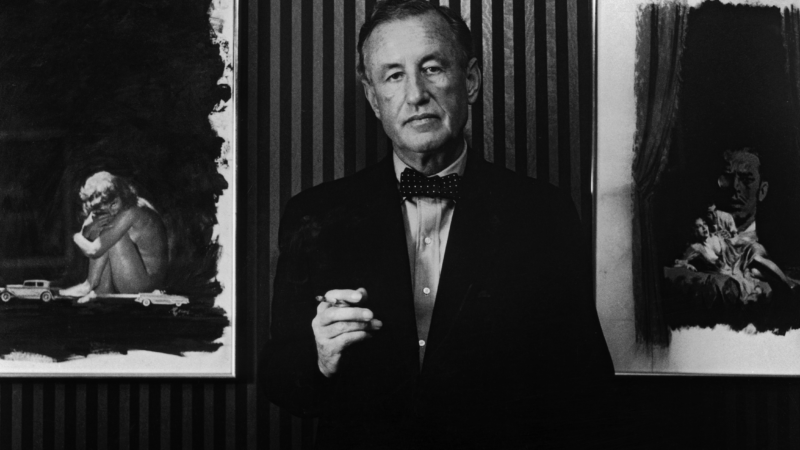Newly published stories show a different side of Ian Fleming and Graham Greene
Ian Fleming, the British writer best known for creating the world’s most famous spy, is back in the spotlight decades after his death.
Before he published the James Bond stories that made him famous, he worked as a stockbroker and served unofficially at times for British intelligence. In the 1950s, his James Bond books quickly captured the public’s imagination and became an enduring pop culture phenomenon. President John F. Kennedy famously carried a copy of From Russia, with Love, declaring it his current read. Fleming died from a heart attack in 1964 when he was 56.
“He led an incredible life,” said Andrew Gulli, managing editor of The Strand Magazine, a Chicago-based quarterly. “He worked for the British intelligence services. He worked for The Sunday Times as their foreign news editor.”
This week, The Strand Magazine published a rarely seen short story by Fleming titled “The Shameful Dream,” which predates his first James Bond novel. It was found through a collector who had access to Fleming’s family archives.
“It’s about a newspaper editor named Caffery Bone,” says Gulli. “And he is in a limousine on the way to his boss’s home.”
According to him, Bone’s boss bears the hallmarks of a Bond villain.
“He delights in finding unusual ways of firing the people who work underneath him,” Gulli, a huge fan of Fleming’s work, said. “He is very wealthy and quite sadistic.”
The latest issue of the Strand also includes a never-before-seen ghost story by another mid-century literary writer: Graham Greene. They discovered the manuscript in a University of Texas library collection.
“‘Reading at Night’ is this what-if moment about a man who is in a house in the south of France on vacation,” Gulli said, “and he’s reading a book that becomes slightly spooky and sinister, and he suddenly finds out that some of the eerie things in the story that he’s reading starts happening to him in real life.”
Pairing Greene with Fleming says something new about both authors, and why their writing endured, Gulli added.
“What I found fascinating about pairing these two together was that these are two writers [who] are icons of mid-century writing. But these are works that are not within their comfort zone,” Gulli said.
The quarterly is celebrating its 75th issue. It’s known for publishing rare, forgotten, or previously unpublished works, including pieces by John Steinbeck and Tennessee Williams, as well as interviews with contemporary writers.
It’s one thing for magazines to find a lost or forgotten work, but it’s another for it to actually be good, pass muster and be worthy of publishing.
“It’s very hard work. And I think that’s one of the reasons why we’re one of the only magazines, that we’re one of the few journals that specializes in this,” Gulli said.
Swiss Alpine bar fire claims 41st victim, an 18-year-old Swiss national
Swiss prosecutors have opened a criminal investigation into the owners of Le Constellation bar in the ski resort of Crans-Montana, where a fire in the early hours of Jan. 1 killed dozens.
Sunday Puzzle: Rhyme Time
NPR's Ayesha Rascoe plays the puzzle with WBUR listener Laurie Rose and Weekend Edition Puzzlemaster Will Shortz.
Alcaraz beats Djokovic to become the youngest man to complete a career Grand Slam
The 22-year-old Spaniard's win against 38-year-old rival Novak Djokovic at Sunday's Australian Open makes him the youngest male player to win all four major tournaments.
You already know the song — now, ‘The One About the Blackbird’ is also a picture book
In The One About the Blackbird, a young boy learns to play guitar from his grandfather. And there's one song in particular that they love…
In the world’s driest desert, Chile freezes its future to protect plants
Tucked away in a remote desert town, a hidden vault safeguards Chile's most precious natural treasures. From long-forgotten flowers to endangered crops.
At a clown school near Paris, failure is the lesson
For decades, students at the Ecole Philippe Gaulier have been paying to bomb onstage. The goal isn't laughs — it's learning how to take the humiliation and keep going.







